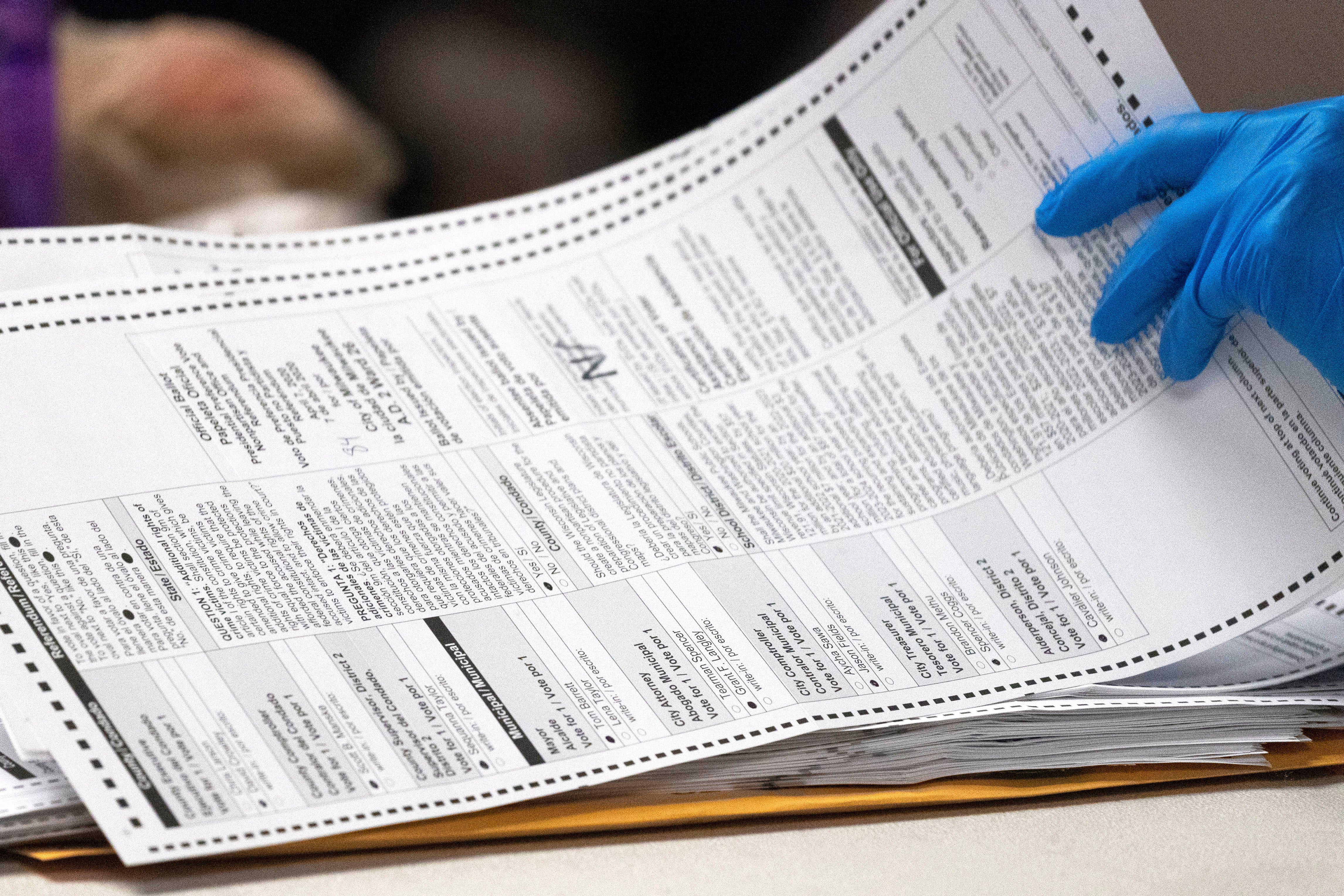Voter purge case before Wisconsin Supreme Court
The Wisconsin Supreme Court is scheduled to hear arguments in a case that could result in the purging of about 130,000 people from voter rolls in the hotly contested battleground state

Your support helps us to tell the story
From reproductive rights to climate change to Big Tech, The Independent is on the ground when the story is developing. Whether it's investigating the financials of Elon Musk's pro-Trump PAC or producing our latest documentary, 'The A Word', which shines a light on the American women fighting for reproductive rights, we know how important it is to parse out the facts from the messaging.
At such a critical moment in US history, we need reporters on the ground. Your donation allows us to keep sending journalists to speak to both sides of the story.
The Independent is trusted by Americans across the entire political spectrum. And unlike many other quality news outlets, we choose not to lock Americans out of our reporting and analysis with paywalls. We believe quality journalism should be available to everyone, paid for by those who can afford it.
Your support makes all the difference.The Wisconsin Supreme Court is scheduled to hear arguments Tuesday in a case that could result in the purging of about 130,000 people from voter rolls in the hotly contested battleground state.
However, it wasn't clear if the court would rule in time to affect the Nov. 3 election that was just five weeks away. Attorneys for both sides didn't expect a decision until after the election.
The arguments come in one of several closely watched lawsuits in Wisconsin. On Sunday, a federal appeals court temporarily put on hold a ruling that would expand the time that absentee ballots can be counted.
President Donald Trump won Wisconsin by fewer than 23,000 votes in 2016, making the fight over any change to the process of voting and who is able to vote all the more significant.
A conservative law firm was asking the Supreme Court to overturn a state appeals court's ruling earlier in February that stopped the purging of the voters who had been identified as potentially having moved. A circuit court judge had ruled that the voters must be removed immediately, but the appeals court overturned that.
Because voters who moved were concentrated in more Democratic areas of the state, liberals argued that the lawsuit was meant to lower turnout on their side. Republicans countered that it was about reducing the likelihood of voter fraud and making sure that people who moved are not able to vote from their previous addresses.
The Wisconsin Institute for Law and Liberty, which brought the lawsuit on behalf of three voters, had asked the Supreme Court to decide the case before the November election. But the court slated it for its regular argument schedule, not a faster track, making it unlikely to rule in time to affect voters this year.
The Wisconsin case is among several nationwide asking state or local elections officials to purge voters from the rolls. On Monday, a judge in Georgia dismissed a similar lawsuit filed by two voters in Fulton County, which includes Atlanta. The lawsuit sought to force election officials to hold hearings that could have resulted in 14,000 voters being removed from the county’s voter rolls before the November general election.
Absentee voting is underway in Wisconsin with more than 238,00 ballots returned already.
The Supreme Court is controlled 4-3 by conservatives. But Justice Brian Hagedorn, who worked as former Republican Gov. Scott Walker's attorney and was backed by conservatives in his run for the court, has repeatedly sided with more liberal justices in high profile cases. Hagedorn in September sided with the three liberal justices in ruling it was too late for a Green Party presidential candidate to force his way onto the ballot after the elections commission determined he was ineligible.
In the voter purge lawsuit, conservatives argue that the state elections commission broke the law when it did not remove voters from the rolls who did not respond within 30 days to a mailing last year indicating they may have moved. The commission wanted to wait until after the presidential election before removing anyone because of inaccuracies found while previously attempting to identify voters who may have moved.
The appeals court said in its unanimous decision in February that the law in question does not refer to the Elections Commission or give any duties to it related to deactivating voters. The commission argued that the power to do that rests with local election clerks. The appeals court agreed.
No voters have been deactivated while the legal fight continues. Even if a voter has their registration deactivated, they can register again later or on Election Day when they show up at the polls, assuming they have the required documentation proving where they live, such as a driver's license, paycheck stub or utility bill.
In another case being heard Tuesday, the Supreme Court will consider when a voter should be considered indefinitely confined. Those voters are able to receive absentee ballots without first showing a photo ID. Republicans sued in March after Dane County Clerk Scott McDonell posted online ahead of the April election that voters could call themselves indefinitely confined if they were staying home because of the pandemic.
A ruling in that case is also unlikely before the November election.
___
Follow Scott Bauer on Twitter: https://twitter.com/sbauerAP